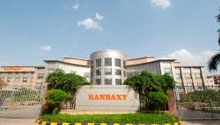 Last year Ranbaxy Laboratories managed to report a one-quarter profit by getting the FDA to allow it to launch its exclusive of generic Diovan from its plant in New Jersey. The switch was sought after the agency banned the Indian plant from which Ranbaxy would have made the drug. But with that workaround played out, and bans against four of its plants still in place, India's largest generic drugmaker saw earnings slip back into the red for the final quarter of the year.
Last year Ranbaxy Laboratories managed to report a one-quarter profit by getting the FDA to allow it to launch its exclusive of generic Diovan from its plant in New Jersey. The switch was sought after the agency banned the Indian plant from which Ranbaxy would have made the drug. But with that workaround played out, and bans against four of its plants still in place, India's largest generic drugmaker saw earnings slip back into the red for the final quarter of the year.
On Wednesday, Ranbaxy, which is set to be acquired by Sun Pharmaceuticals, reported an after-tax loss of 10.3 billion rupees ($167.7 million) for the three months ended Dec. 31. That compared with a loss of 1.6 billion rupees ($26 million) in the same quarter a year ago. Sales were 26.18 billion rupees ($426 million), down from 28.93 billion rupees ($473 million) in the year-ago quarter. It reported U.S. sales of 8.2 billion rupees ($133.7 million).
The FDA bans against the drugmaker have wreaked havoc on its earnings, but it was able to report a $78 million quarterly profit for the quarter ended in September following the June launch of its generic of the Novartis ($NVS) heart drug Diovan. Ranbaxy had a first-to-file exclusive on the drug but was in the midst of dealing with FDA quality concerns when it went off patent in September 2012. The FDA worked with the company to move production to its Ohm Laboratories plant in New Jersey, its only FDA-approved facility not restricted from selling in the U.S. But the process took nearly two years, and the FDA faced criticism for not allowing other drugmakers to make the generic so that consumers could get cheaper versions of the popular drug.
The agency, faced with a similar issue over Ranbaxy's first-to-file approval to make a generic of AstraZeneca's ($AZN) blockbuster heartburn medicine Nexium, canceled that approval in November. This week it approved Teva Pharmaceutical ($TEVA) to make the generic instead.
Wednesday's earnings report is likely Ranbaxy's last as an independent company. Its majority owner, Daiichi Sankyo, agreed last year to sell the troubled company to Sun Pharmaceutical in an all-stock deal now valued at about $4 billion. The merger is expected to close next month. Sun's managing director, Dilip Shanghvi, has pledged that the first order of business when the deal is done is to turn around the problems at Ranbaxy's four FDA-approved plants in India that have been banned from shipping to the U.S. because of their ongoing quality issues.
- here's the earnings release
- more from WSJ (sub. req.)